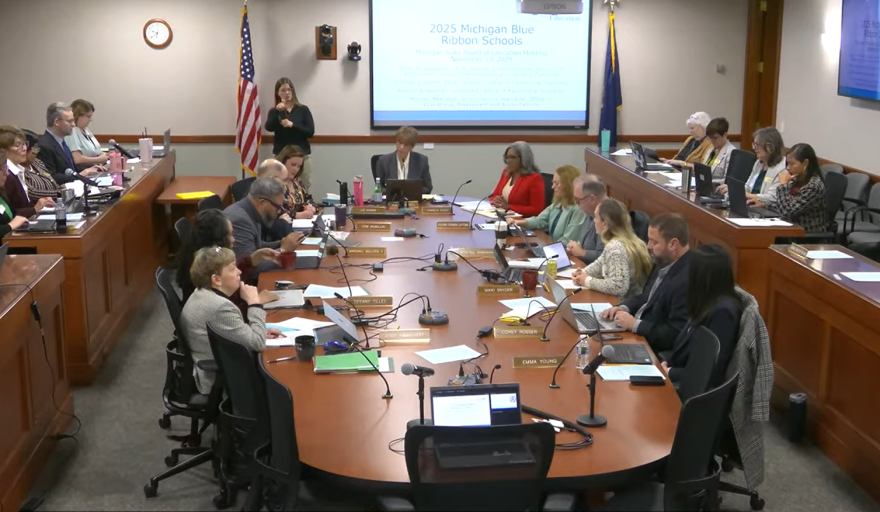The Michigan Board of Education voted Thursday to update the state’s Health Education Standards for the first time since 2007.
The 74-page guidelines cover a wide range of topics including substance use and misuse, emotional and physical health, and sex education. Some new items include discussions about social media and newer technology, gender identity and sexuality, and boundary setting.
Ann Arbor Public Schools board member Rima Mohammad was among dozens of people who spoke during public comment at Thursday’s meeting. She said the new standards could help students make healthier and safer choices.
“Inclusive health education leads to lower rates of bullying, higher levels of student safety and better mental health outcomes. In contrast, when students feel invisible and stigmatized, we see higher rates of depression, absenteeism, and even suicide risks,” Mohammad said.
The guideline standards faced fierce opposition from conservative groups that argued they go far beyond what state law requires for health education, and that sex education would start too young.
State Board of Education member Nikki Snyder was among two board members who voted against the guidelines after hours of public comment and discussion.
Snyder said she believes health and sexual education should be separate, rather than integrated in school curriculum.
“It's an overstep in parental rights, for sure. It's confusing the difference between health education, which is prescribed in law as a set of topics, and sex education, which is prescribed in law to protect parental rights. When you conflate those two terms, you will eventually take away parental rights,” Snyder said.
Supporters of the standards argued parents would still be able to opt their kids out of sexual education, though opponents said they would permeate more parts of a school’s curriculum than what’s formally labeled as sex ed.
The new standards are nonbinding guidance and still leave school districts to set their own curriculum.






